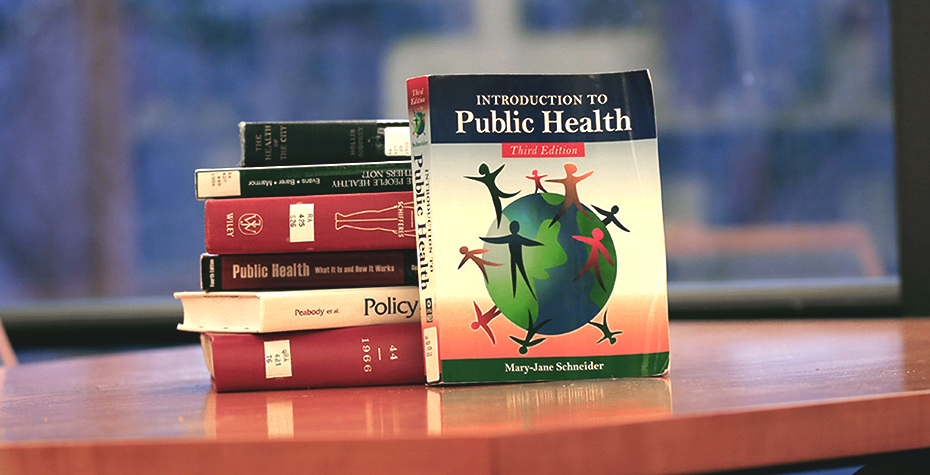Students Explore Questions of Global Health and Wellbeing Inside and Outside of the Classroom

The week is National Public Health Week, an initiative of the American Public Health Association to raise awareness and interest in matters of public health. At Wellesley, many students pursue interests in public health inside the classroom, through internships, and throughout their careers after graduation.
One of Wellesley's more recent curriculum additions is the Health & Society minor, an interdisciplinary program which examines human health as an eco-social phenomenon, drawing principally from the humanities and social sciences. The rapid global growth of health issues and institutions–public health, health care, health policy, and biomedical sciences and technology–in the face of growing disparities raises questions about the underlying social conditions that contribute to collective health and illness.
The minor is offered by the Women's and Gender Studies department, making it a unique program, according to assistant professor of women and gender studies Charlene Galarneau. “[The department] has long offered multiple courses in the health area and thus has drawn students interested in public health, health care, and health policy,” said Galarneau, , who co-directs the program with Marion Butler McLean Professor in the History of Ideas and professor of Women's and Gender Studies Susan Reverby. “The minor brings this strength together with other health-related courses taught by faculty from across the Wellesley curriculum. The Health and Society minor now has 20 students from across all disciplines including neuroscience, economics, environmental studies, Spanish, biological sciences, political science, and more. Wellesley will graduate its first Health and Society minors - five of them - next month.”
One of those graduating minors is Victoria Rines ’15, who came to Wellesley interested in medicine. “The spring of my sophomore year, I enrolled in a class in the Women's and Gender Studies department, ‘Women and Health,’ and my perspectives on health shifted,” she said. “This course took a broad focus on health, and introduced me to the population-based framework of public health. In contrast to the doctor-patient relationship, public health seeks to create opportunities for health within a population, not just to cure or mitigate the illnesses of a single person. From this course, I learned how the policies and structures within our communities - where we build grocery stores, who has access to healthcare, how we discriminate or include certain groups - has a profound effect on the health of populations. I felt compelled to join these big-picture conversations about health and the distribution of disease, and decided to shift my academic studies and internship searches toward public health.”
Rines explored public health outside of the classroom through several key internships, including a summer with the Lumpkin Institute working with a sexual violence crisis center in Boston and another in the Philippines through an Albright Institute internship with a reproductive health nonprofit organization. “These experiences have furthered my passion for partnering with populations to address the structures and policies that make them vulnerable to ill-health,” she said.
When Rines graduates and joins the Wellesley alumnae network, she will find many alums who are passionate about matters of public health. Pioneering pathologist Vivian Pinn '62 directed the Office of Research on Women's Health for the National Institutes of Health. Diana Chapman Walsh '66 chaired the Social and Behavioral Health department at the Harvard School of Public Health before becoming Wellesley's twelfth president. Ophelia Dahl DS'94 cofounded the global organization Partners in Health, and Dana Im '10 founded community health project Proyecto Doctoritas before winning a prestigious Soros Fellowship to support her medical education.
And the American Public Health Association, organizers of National Public Health Week, is led by president Camara Jones '76. Wherever you look, there are Wellesley women working for healthier communities.
